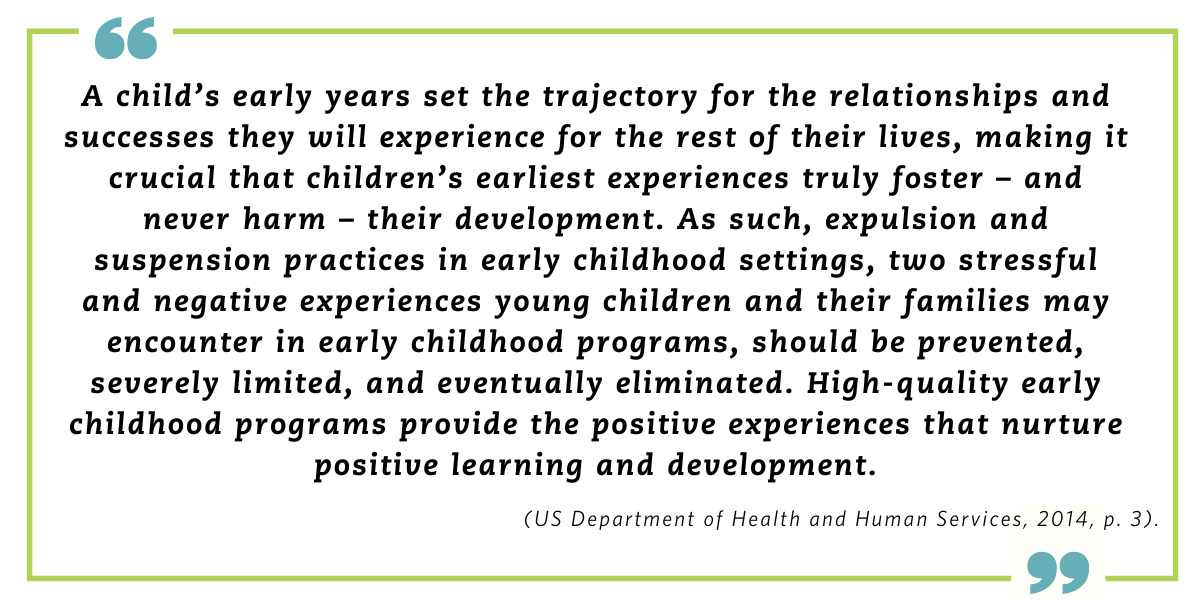At times, the behavior of a young child can challenge the skills and abilities of their caregiver.
When a caregiver feels that a child’s behavior is disruptive to other children and that there is not anything they can do to support the child in changing their behavior in a positive way it can create a lot of stress.
Within early care and education programs, including family child care programs, ongoing stress resulting from a caregiver feeling unable to support a child can create a situation in which suspension or expulsion from the program may appear to be the only or best solution. However, research indicates that suspension or expulsion of young children from early care and education programs hinders healthy development across all areas and can interfere with identifying and addressing differences. Children may qualify for intervention services, but if they are excluded from early care and education programs, they may not receive the referrals or evaluations that are needed.
Statistics about suspension and expulsion of preschool aged children:
- Boys receive more than three out of four out of program suspensions
- Black children make up 18% of preschool program enrollment but 48% of those who are suspended
- Young children who are expelled or suspended are up to 10 times more likely to:
* drop out of high school
* experience academic failure
* repeat grades
* have negative attitudes about school
* face incarceration
* be suspended or expelled in later grades
What can caregivers do to respond to the behavior of children in positive ways?
Illinois Early Learning has developed a series of tip sheets focused on positive guidance, which offer strategies for caregivers.
In addition, resources about developmental referrals and screenings can be found on the CDC website
Additional resources from the US Department of Health and Human Services Office of Early Childhood Development about reducing suspension and expulsion practices in early childhood settings.
References:
- American Psychological Association, Zero Tolerance Task Force Report (2008). An evidentiary review and recommendations.
- Gilliam, W. S. (2005). Prekindergarteners left behind: Expulsion rates in state prekindergarten systems. New York, NY: Foundation for Child Development.
- Lamont, J. H., Devore, C. D., Allison, M., Ancona, R., Barnett, S. E., Gunther, R., … & Young, T. (2013). Out-of-school suspension and expulsion. Pediatrics, 131(3), e1000-e1007.
- Petras, H., Masyn, K. E., Buckley, J. A., Ialongo, N. S., & Kellam, S. (2011). Who is most at risk for school removal? A multilevel discretetime survival analysis of individual- and context-level influences. Journal of Educational Psychology, 103, 223
- Raffaele Mendez, L. (2003). Predictors of suspension and negative school outcomes: A longitudinal investigation. New Directions for Youth Development, 99, 17-33.
- U.S Department of Education Office for Civil Rights (2014). Data Snapshot: Early Childhood Education
- US Department of Health and Human Services. (2014). Policy statement on expulsion and suspension policies in early childhood settings. Washington, DC: US Department of Education. https://www.acf.hhs.gov/sites/default/files/documents/ecd/expulsion_ps_numbered.pdf



